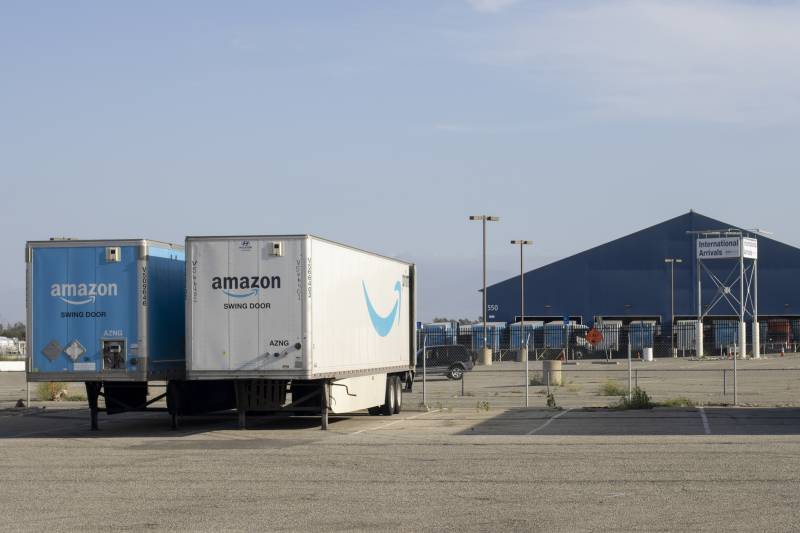An internal Amazon memo has provided a stark look at the company’s carefully laid out plans to grow its influence in Southern California through a plethora of efforts that include burnishing its reputation through charity work and pushing back against “labor agitation” from the Teamsters and other groups.
The eight-page document — titled “Community Engagement Plan” for 2024 — provides a rare glimpse into how one of America’s biggest companies executes its public relations objectives and attempts to curtail reputational harm stemming from criticisms of its business. It also illustrates how Amazon aims to methodically court local politicians and community groups to push its interests in a region where local moratoriums on warehouse development could hamper it, and it is facing resistance from environmental and labor activists.
The memo was leaked to the nonprofit labor organization Warehouse Worker Resource Center and posted online this week. The Associated Press independently verified its authenticity.
